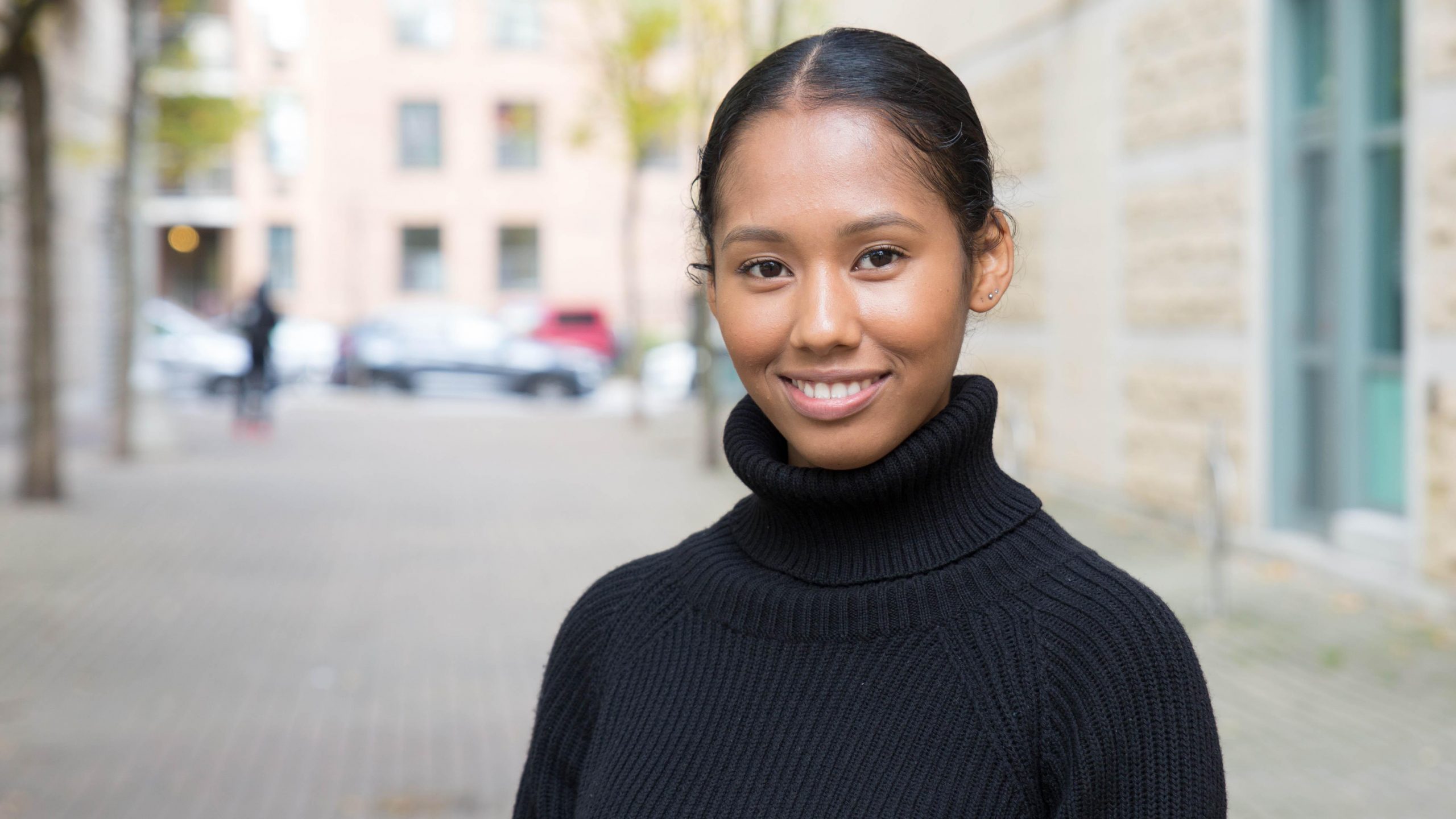By Minzi Wataoka
According to my Japanese mother, I act like I’m African, but to some of my Black Canadian peers, I’m “so Asian.” I object.
Japanese and Tanzanian blood throbs through my veins—under this tawny-brown skin that’s neither completely Black nor yellow, I find it funny that I’m often conflicted of having to choose either one or the other. In fact, I am both and neither, I am all or nothing at all. It sounds paradoxical, and it might not make sense to you. Sometimes it doesn’t make sense to me either.
One summer when I was 14, I went back to Japan where my parents lived. I came home with bigger hips, and they laughed and told me that my African DNA was finally kicking in. When I learned to kiss my teeth in annoyance, my African father laughed and said “Where did you learn to do that?” When I started speaking more English and less Japanese, my mother worried I was “forgetting how to speak Japanese.” Their little Asian daughter was growing up to be a fierce Black woman. There was an unspoken sentiment of discomfort and unfamiliarity in their body language with the way I interacted with them.
I came to Canada right after I finished elementary school, spending most of my teenage years and my 20s here in Canada. I feel more “Canadian” in a sense that my attitude, beliefs and philosophies were nurtured here in Canada. I received an excellent Westernized secondary and postsecondary education here. I feel like I’m Canadian.
My passport confirms that I was born in Japan. I am therefore a citizen of Japan. My immigration papers say I am a legal immigrant in Canada. My papers say I am an international student, whose parent was able to save up an extensive amount of money just to keep me in Canada and get an education. I went to a junior high school in Hamilton, moved to a high school in Oshawa and then proceeded to get my post-secondary education at Ryerson University in Toronto.
At the immigration desk, officials would ask me what the purpose of my stay in Canada is. “Study,” I would answer and check off the box. It’s the only excuse I have to stay here. It’s the privilege of being an international student, I guess.
But my family is not rich, contrary to the presumption placed on international students. I am appreciative of my parents for working so hard and making such a huge decision of sending me to Canada so I could be happier. Happier in my own skin. Happier because I could be accepted by more people. But there is a tradeoff. There’s a part of me that is still left out because I haven’t gotten the full experience of a “Canadian childhood,” a “Canadian family,” a “Canadian home.” There is a lot of untold emotional distress and anxiety I go through everyday thinking about my ostensibly uncertain future.
The fact is, I’m not Canadian because I don’t have a place where I can call home here in Canada. I can’t always rely on my parents to take me in for a few months while I decide my career path. I’m not sure whether I can stay here forever, or whether I can even get a stable job after graduation. Everyday, I go through the emotional waves of optimism that are replaced by the waves of doubt one after another. No reassurance. No comfort. There is nothing Canadian about that.
There is nothing Asian about me either. Once my Asian friend told me about what his mother had mentioned to him. “She said you’d be prettier if your skin was lighter,” he told me, laughing. It was insularity. But for a moment, I believed her words. In an Asian world, I was insufficient. I was too dark to be pretty. I tried to meet their expectations by having straight hair, wearing their clothes and using their shampoos. Conforming to their cultural propriety, imitating their attitude and, consequently, failing at all of it. I felt utterly lost that I didn’t fit in. There was nothing Asian about me. I was hurt.
In the midst of this identity crisis, I look for a comfort in being Black. Not that it is convenient, but that’s what I’ve been told since I was little. To many people who walk pass by me, I am Black. The majority of my friends in Canada are Black. People whom I can call family here are Black. But even with all that, I often feel suppressed within my ambiguous self-conception.
To what extent am I Asian? To what extent am I Black? To what extent can I identify myself as, well… Canadian? Where does an individual who looks Black but was born in Asia; who grew up in a Western culture; who speaks Japanese and has a slight accent belong? To those who reject me as Asian, I am Black. To those who reject me as Black, I am Asian. I am either, or nothing at all. Do I draw my own check box like how Meghan Markle’s father told her to?
“I am my own country, my own identity and my own race,” I tell my friends jokingly. But it’s not that simple.













Ella D
I’m confused. If the author has lived in Canada for many years and is a legal immigrant as well, then why does she need to be an international student?